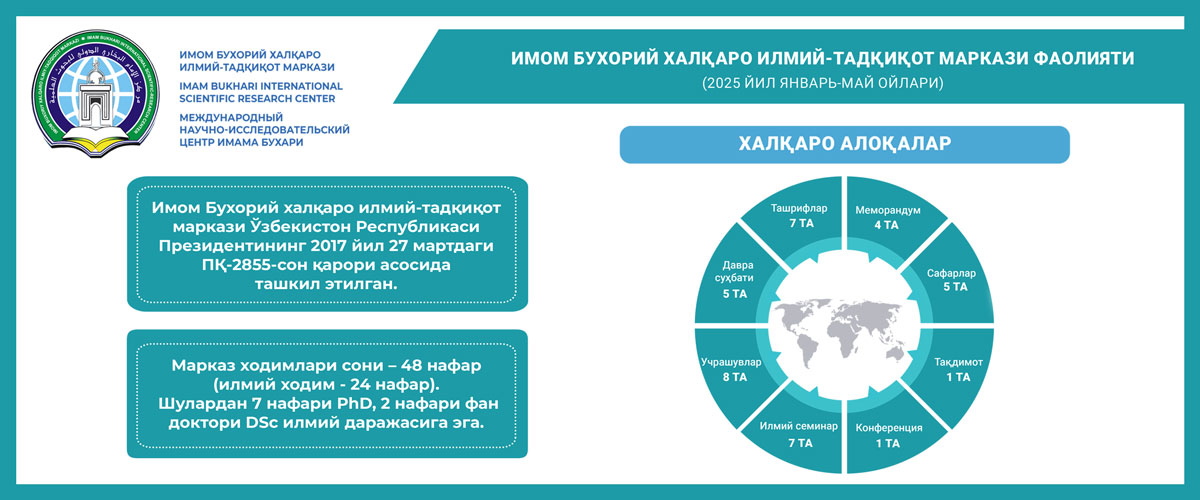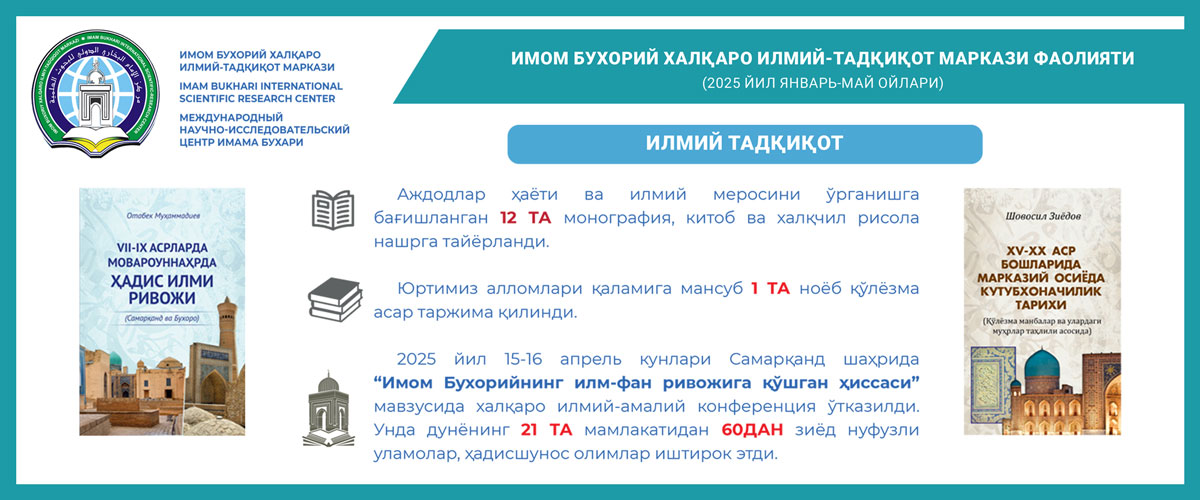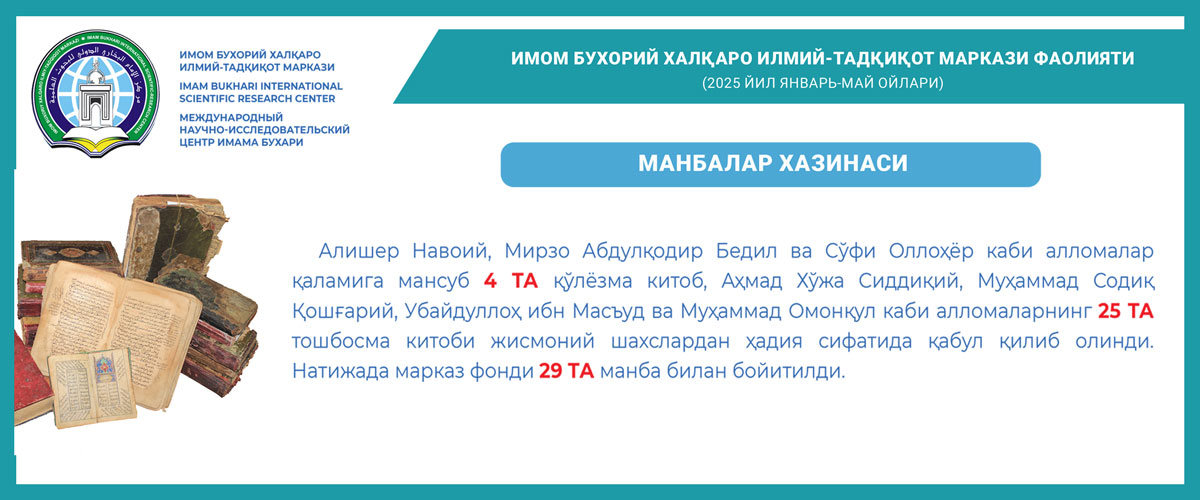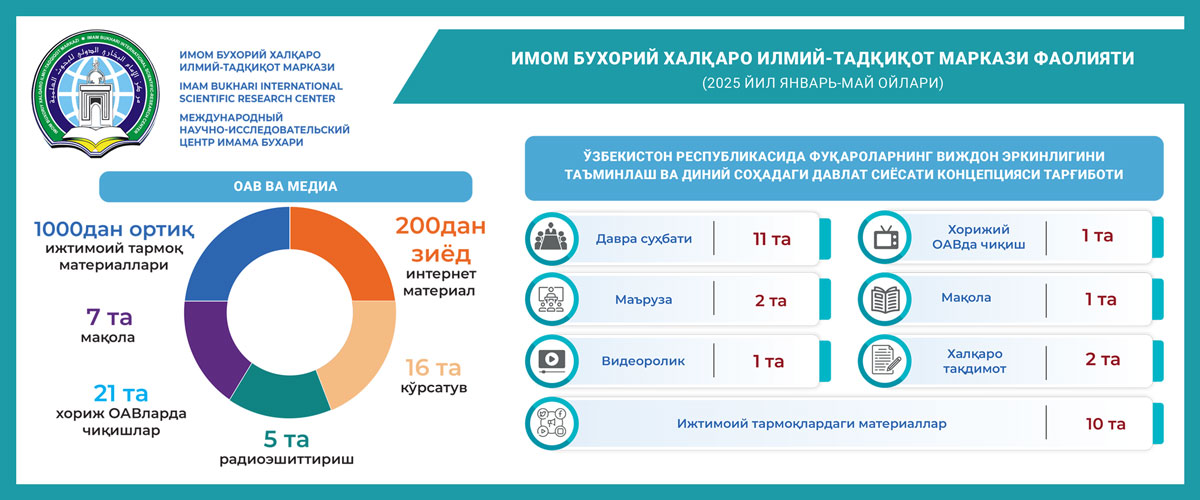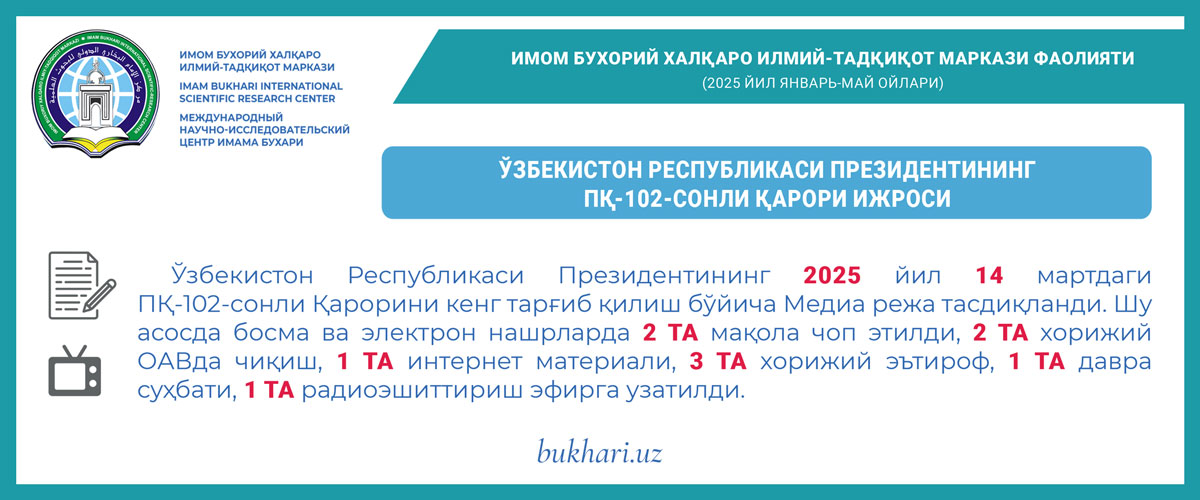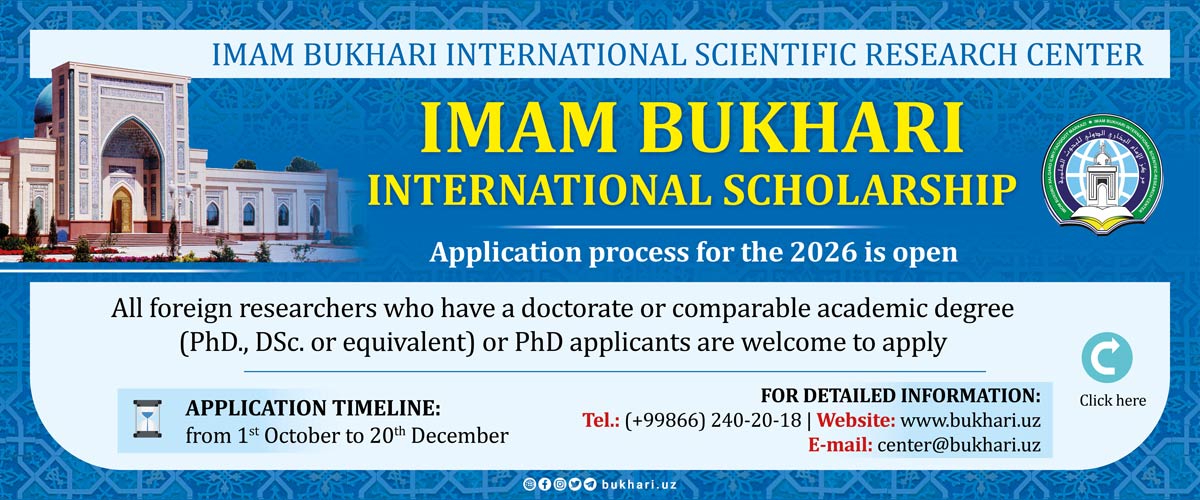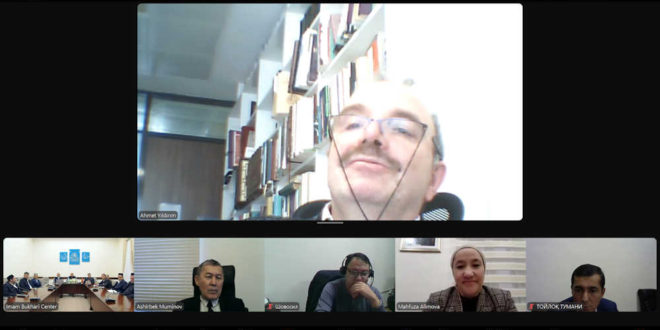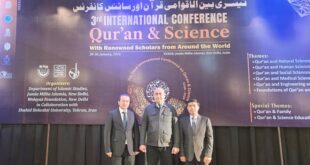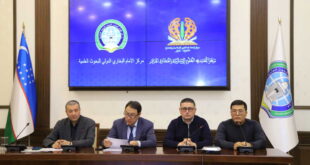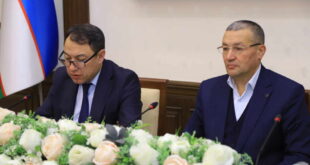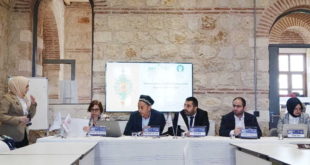The Imam Bukhari International Scientific Research Center, in collaboration with the Research Centre for Islamic History, Art and Culture (IRCICA), held another online seminar as part of the scientific project “Central Asia – the Center of Islamic Culture and Art”.
It was attended by representatives of the Institute of Oriental Studies of the Academy of Sciences, the International Islamic Academy of Uzbekistan, the Center for Islamic Civilization in Uzbekistan, the Imam Moturidi International Scientific Research Center, the Imam Termizi International Scientific Research Center, scholars of the Mir Arab Madrasah, teachers and students of the High School for Hadith Science, scientific staff of the Center, representatives of IRCICA, researchers from Turkey and Germany, as well as officials of the Toyloq district of the Samarkand region.
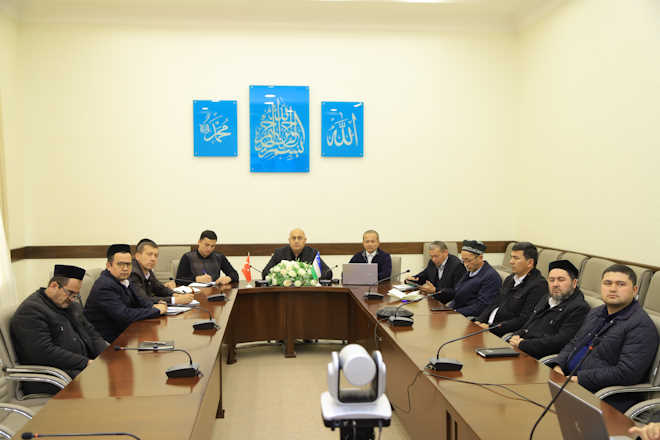
At the seminar, Prof. Dr. Ahmet Yıldırım, a professor at Ankara Yıldırım Beyazıt University in Turkey, gave a lecture on the topic “Imam Dorimi’s Scientific Legacy and Today”.
The scholar began his lecture with a brief description of the life of Imam Dorimi, a highly learned scholar from Transoxiana, an accomplished hadith scholar, and one of the founders of disciplines such as tafsir and hadith studies. He provided information about the reason he was given the title Darimi, his scientific connections with Imam Bukhari, and his many distinguished students.
Imam Dorimi was one of the most famous scholars of his time, active in both the fields of hadith and fiqh. His worldview was formed in a complex political, religious and social environment, while his scientific activity took place at a time when various fake and fabricated hadiths were widespread, and when disputes between different sects and movements were rife. These factors mainly led the scholar to collect reliable hadiths, to approach this extremely responsible work with deep reflection, extreme care, and a critical and analytical approach.
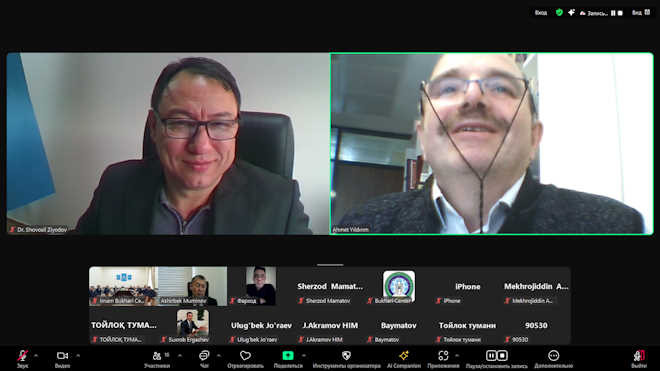
The professor noted that the scholar is described in many sources as a very intelligent, socially active, and virtuous person, and that he held a unique place among scholars and held a high position due to his knowledge, deeds, piety, and beautiful behavior.
Imam Dorimi wrote several important works during his lifetime, and his scientific and spiritual heritage consists of extremely rare and valuable scientific literature such as “Musnad”, “Tafsir”, “Jami'”, “Sulosiyot fil hadith”, “Kitab al-sunna fil hadith” and “Kitab al-sawmul mustahazat wal mutakhayyirat”. The scholar’s most famous work is “Musnad” (literally meaning “Base” or “Collection of hadiths with a clear, reliable chain of transmission”), which is known as “Sunan al-Dorimi”.
The Turkish scholar noted that although Imam Dorimi did not write an independent fiqh work, his collection contains jurisprudential, practical, and comprehensive instructions. For example, the author stated in a hadith narrated from Abu Hureyrah that a guest may or may not fast. He also expressed his opinion on whether to make up a missed fast if one forgets that he intended to and eats. He wrote that cupping during Ramadan requires extra caution. These thoughts indicate that Dorimi also had his own point of view on fiqh matters.
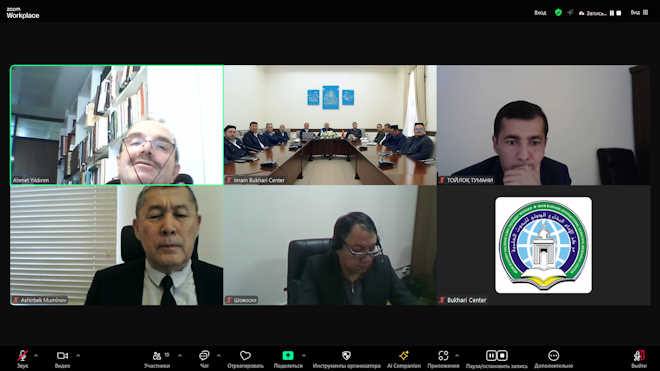
As noted, Imam Dorimi left a great legacy for the Muslim community. He wrote his works with the aim of preserving the hadith and the sunnah, and protecting the sunnah from corruption. Dorimi devoted his entire life to the development of the science of hadith in Samarkand, sharply exposing and condemning fake hadiths. In this way, he paid special attention to the teaching of the sunnah, especially the collection of hadiths of jurisprudence, and conveying them to society.
Hadiths have always played an important role in providing just rulings on the problems of life. This is one of the foundations of jurisprudence and belief. Imam Dorimi was one of the leaders of this movement and made a great contribution to preserving the Sunnah and passing it on to future generations.
The speaker also provided detailed information about the research conducted by Turkish researchers on the scientific heritage of Imam Dorimi and their results.
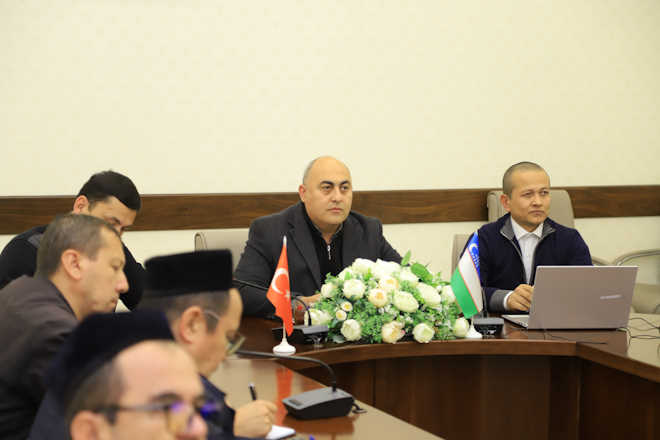
The seminar presented interesting proposals for summarizing, popularizing, and widely promoting the research of scientists from many countries on the scholar’s scientific heritage.
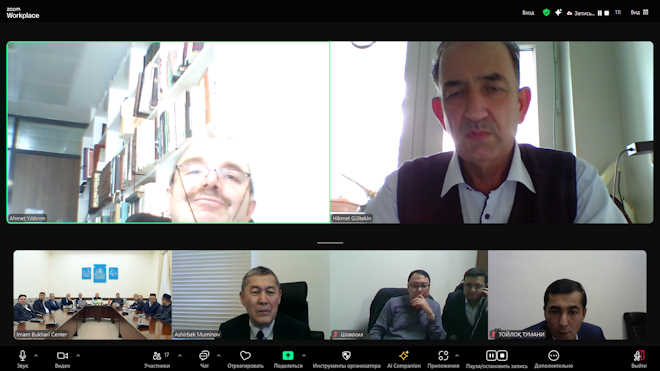
The conference continued with a lively question-and-answer session.
 Imom Buxoriy xalqaro ilmiy-tadqiqot markazi bukhari.uz
Imom Buxoriy xalqaro ilmiy-tadqiqot markazi bukhari.uz
